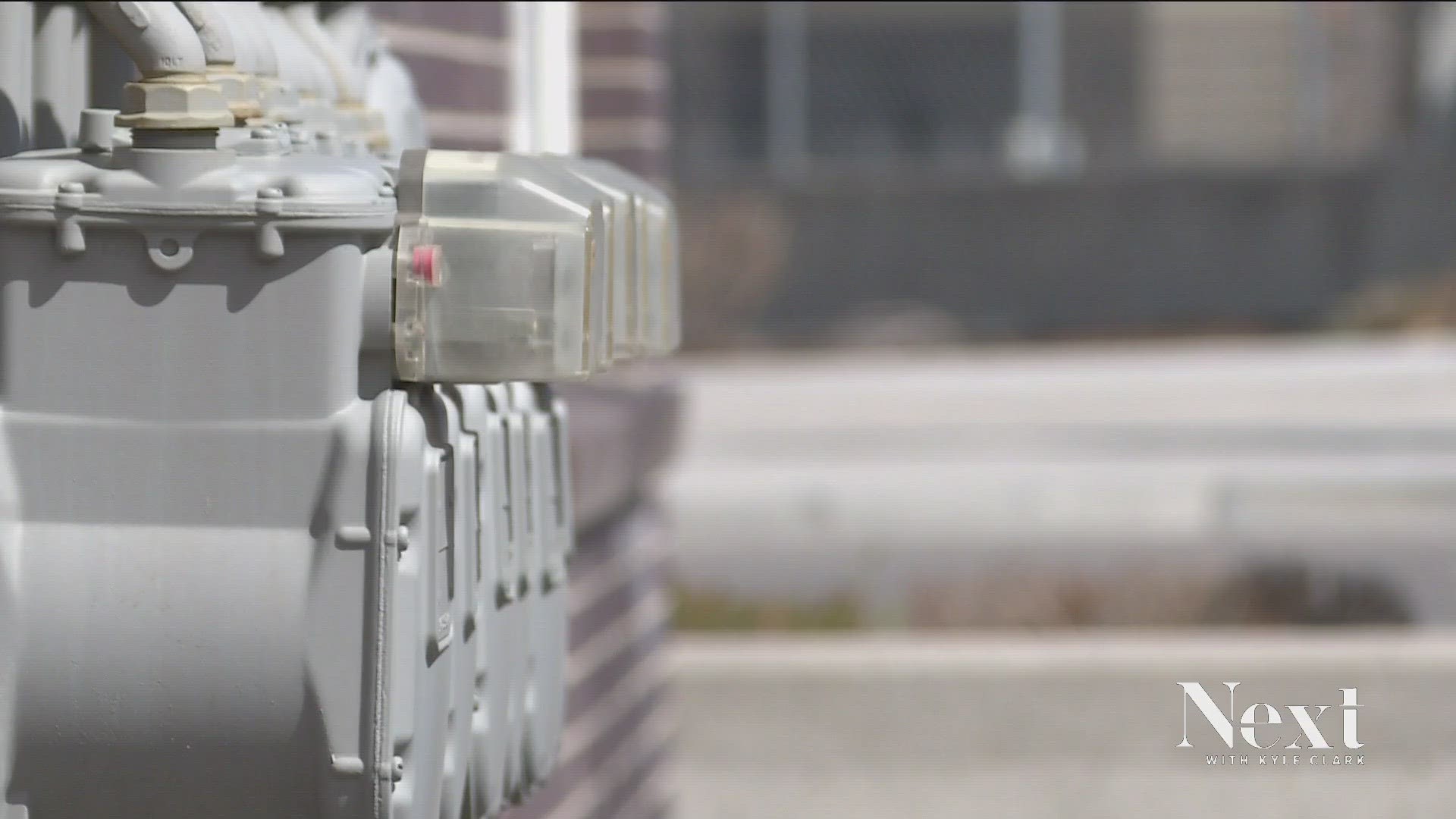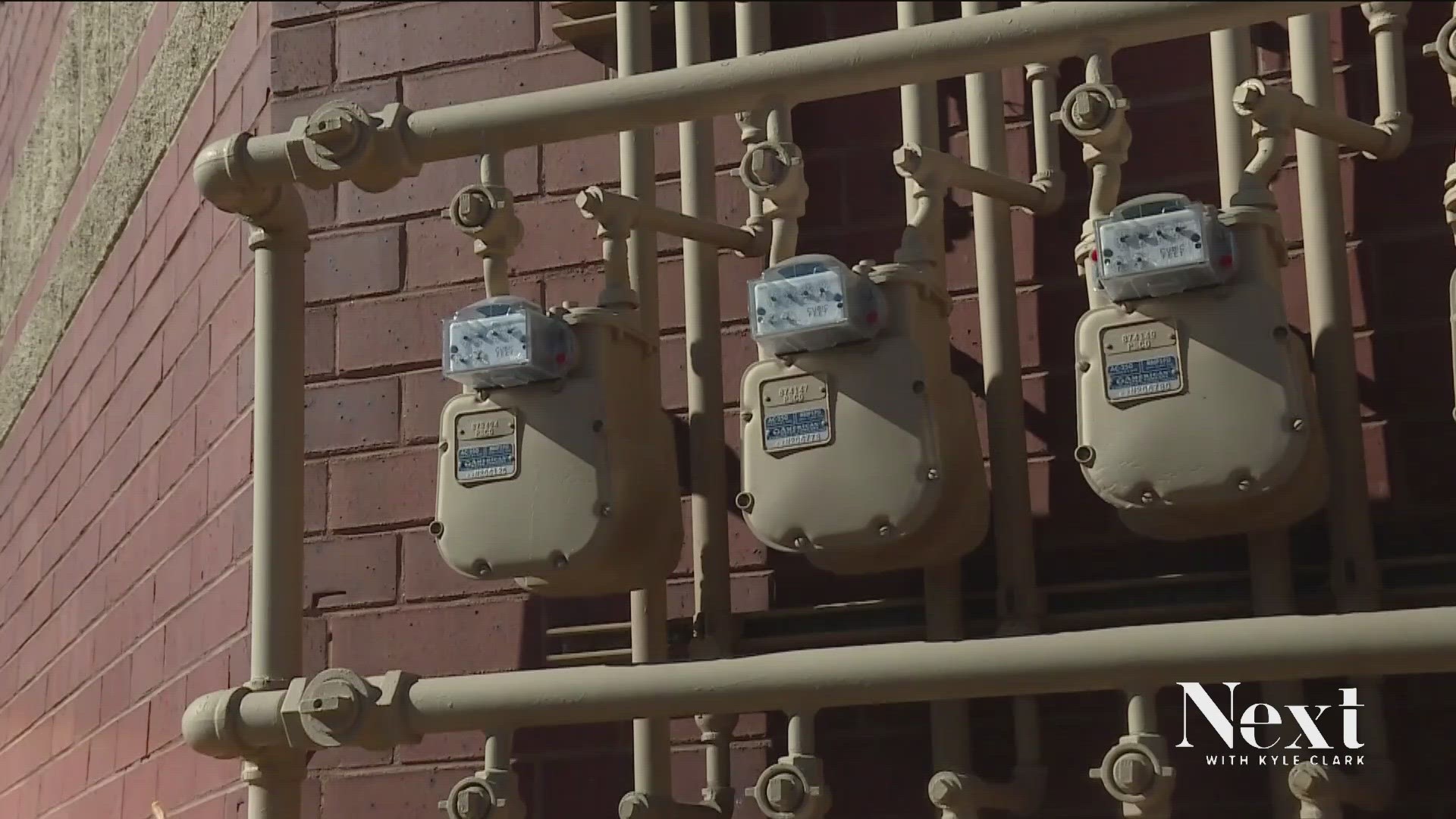DENVER — What started out as a story decoding your Xcel Energy bill has now led to potential legislation to lower that bill.
Since late January, we have extensively covered high utility costs, starting with what is on your bill and why. We revealed certain expenses (like lawyers and ads) that are passed on to customers that the state legislature will now try to prevent from ending up on your bills.
However, the legislation being considered in Colorado may not bring immediate relief.
In February, the state legislature created a special joint committee to investigate high utility rates. After three meetings in March, the Democratic members of the committee have introduced a bill to make several changes that attempt to reduce utility bills.
“This bill that we’re introducing really is about making sure that consumers are better protected when it comes to their utility bills,” said Senate President Steve Fenberg (D-Boulder).
Senate Bill 291 will have its first legislative hearing on Thursday.
One area it seeks to change is how much of high gas costs can be passed on to customers.
When Xcel customers received winter bills that doubled and tripled from the year before, the cause was the cost of natural gas and colder temperatures that required customers to use more of the expensive gas.
“This past winter, when fuel costs skyrocketed, this bill would have said that you actually can’t charge customers for more than ‘X’ amount of dollars of fuel costs,” Fenberg said.
Part of this legislation would have the Colorado Public Utilities Commission (PUC) set a limit for the cost of gas that a utility could pass on to customers. Above that cost, the utility would have to pay.
“If you go over that because the cost of gas is something we can’t control, and the utility largely can’t control that either, we actually take that difference, put it into an account and decide how to spread it over time, so that a consumer won’t actually feel the spike.”
“The utility should be on the hook for a small portion of the fuel costs,” Fenberg said. “It’s really meant to create an incentive for the utility to care about the cost of fuel.”
The legislation also requires the utility to provide a maximum monthly fuel cost as an estimate for what it expects to pay for gas. If the utility goes over that amount, the PUC could allow the utility to recover the costs from customers, but it would be spread out over time, not immediately on the next bill.
Utility customers are currently paying an added expense on their bills as a result of the February 2021 winter storm that resulted in extraordinary natural gas costs. For Xcel customers that added line item will remain on the natural gas side of the bill through January 2025, and through July 2024 on the electric side of the bill (because natural gas was needed to generate electricity).
“We are not saying that you can’t invest or use fossil fuels anymore, what we are saying is when those costs are really volatile and they can impact consumers in a serious way, we want to do better protecting and insulating consumers from those cost spikes,” Fenberg said.
Fenberg said the intent of having utility companies have risk for natural gas purchases – even if it’s two percent of gas costs over a certain amount -- is also to make more efficient decisions.
“The purpose of that is to align incentives. It’s not to save you the two pennies,” Fenberg said. “The board and the shareholders are now going to say, ‘Hey company, you’re on the hook for some of the fuel costs, so what are you doing to keep those costs low. Right now, there’s nobody asking that question because it doesn’t really matter. This provides some risk exposure, so that they actually will care about those costs.”
The bill would also limit what expenses utility companies could pass on to customers.
In February, we explained that the PUC allowed Xcel to pass along $2 million in legal expenses from outside legal help that Xcel hired to argue in front of the PUC for higher gas rates.
“[The PUC] can say, ‘You only get five experts this hearing’ or they can say, ‘you can only spend up to a couple hundred thousand dollars that gets recovered by ratepayers,’” Fenberg said.
The bill would also limit the type of advertising expenses that utility companies could pass on to customers.
What utility companies would not be allowed to pass on would be advertising expenses that:
- Promote the utility’s brand
- Influence public opinion about the utility
- Intend to create good will toward the utility
“This would very clearly explicitly say those types of advertising expenses could not be passed on to the ratepayer,” Fenberg said.
“It doesn’t take a rocket scientist, even an advertising person could figure out how to write this ad very quickly to talk about renewable energy or cost efficiency, any of those type of matters that ultimately reflects positively on Xcel,” said University of Colorado advertising professor Morgan Young. “I think it’d be really easy to do an ad in Colorado talking about how Xcel is invested deeply in renewable energy, and how do you separate that from branding? I just don’t see how the two can be separated from each other.”
Young has produced advertising for energy companies in other parts of the country, and believes that an ad could be created that could skirt the aspects of this bill and still be passed on to customers.
“This would not be a hard ad to write,” Young said.
“I think the commission would obviously understand that that was not allowed and that was a gaming of the system,” Fenberg said.
“I can’t imagine how the PUC would be able to parse the words and determine what was a violation of this law and what is the rule of the law here,” Young said.
Xcel president testifies against bill
In February, Xcel said that advertising “provides the same benefits to our customers and the company as it would for any other business. It is one of the tools we use to communicate with our customers – sharing news on the work we’re doing, explaining our programs and services and sharing safety and reliability information.”
A spokesperson said that the cost of advertising averages about $3.02 per year on a residential or commercial customer bill.
“The $3.02 will probably remain and would just be a slight tweak to the content of the advertising,” Young said.
How much could this legislation reduce your utility bill? Not even the lawmakers know.
“The reason why we don’t have great clarity is because a lot of this information is not disclosed. It is not transparent,” Fenberg said.
“I think it’s really difficult to come up with a dollar amount because, I think, that some of these changes are going to be spread out over time,” said State Sen. Lisa Cutter (D-Littleton).
Cutter was also a member of the special committee to look at ways to reduce utility rates.
“To me, it’s a lot about transparency, consistency over time, fairness to the consumer, shifting that risk away from the consumer,” Cutter said. “It may not be incredibly impactful right away, but I think sometimes it takes a little while for these things to take hold and create the change that we need to see.”
Neither Republican members of the special committee, State Sen. Barbara Kirkmeyer (R-Brighton) nor House Minority Leader, State Rep. Mike Lynch (R-Wellington) were sponsors of the bill.
Spokespeople for Xcel Energy did not respond to an Wednesday morning email request for an interview with Xcel Energy Colorado President Robert Kenney.
SUGGESTED VIDEOS: Full Episodes of Next with Kyle Clark


